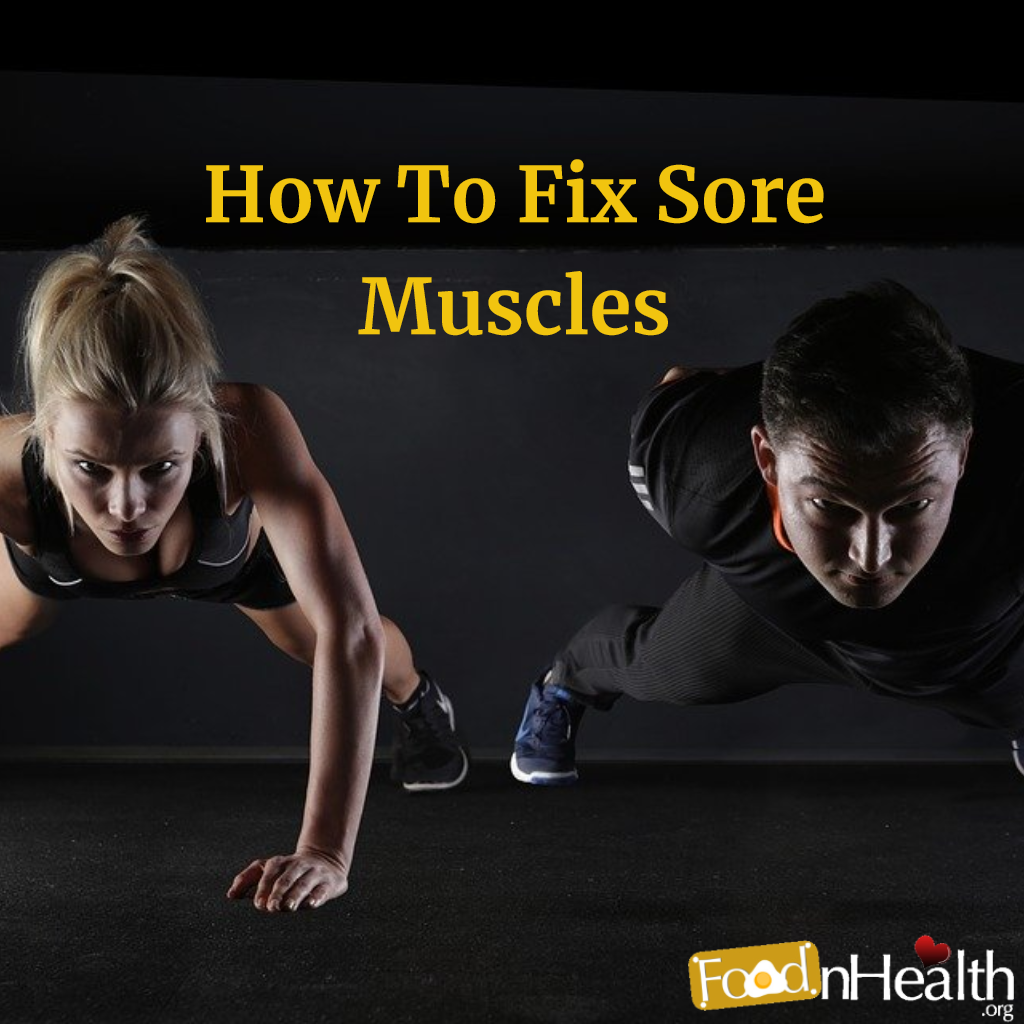You’ve probably heard it all before: exercising is good for you and you should be doing it regularly. Not only does it improve your overall health, but it also makes you feel and look good. However, regardless of your fitness level, sore and aching muscles are much to be expected after a heavy session at the gym.
The main reason why your muscles hurt after exercising is simple. Basically, when you engage in physical activity that you are not used to or when you increase the intensity of a movement, your muscles experience microscopic damage in their fibers. The healing and recovery of these small muscle tears cause aches in the muscles.
Whether you’re an expert or just new to working out, muscle soreness is probably, and understandably, not your favorite part of the whole process. Muscle pains can be immediately felt right after a workout and can last up to a few days. The good news? Sore muscles may be a sign that your exercises are working! To get you back to tip-top shape, here are 7 tips to relieve muscle pains from working out.
7 Tips On How To Fix Sore Muscles
Tip #1: Stretch before and after your workout
Stretching before and after a workout is important to improve performance and prevent injury. In addition, proper stretchings may help reduce muscle soreness. Research shows that the best way to get the most out of it is by doing dynamic stretches before a workout followed by static stretches after.
Dynamic stretches will prepare your muscles for the workout, and static stretching will relax them. Both of these stretches can help enhance your overall workout experience and help you recover faster.
Tip #2: Hydrate! Hydrate! Hydrate!
Hydrating before, during, and after a workout is key to optimal performance and quick recovery. Primarily, it controls the temperature of your body, transports nutrients to create energy, and loosens your joints. But in terms of recovery, it reduces the amount of muscle soreness felt after workouts. In fact, not sipping enough water between workouts may lead to muscle cramps, fatigue, and dizziness.
Tip #3: Pay attention to your nutrition
Eating the right foods is critical to achieving your desired results and optimizing your workouts. After all, food fuels the body. Having a bad diet may cause poor performance and will not help with muscle soreness. It is important to pay attention to the timing and composition of your meals.
Many people believe that one should not eat before or after a workout. But according to research, nutrition before and after exercising is actually very important. Within the first hour of working out, your muscles will convert the carbohydrates and protein to energy. This fuels your body to do more during your workout and helps hasten muscle recovery after.
Here’s what nutrition experts recommend:
- About two hours before working out, hydrate well and eat a carb-heavy snack.
- A piece of fruit before the workout session can also be helpful if don’t have time to eat.
- After working out, you should continue hydrating while fueling your body with carbohydrate and protein-rich meal.
- Some foods that specifically help reduce muscle soreness include berries, turmeric, eggs, protein shakes, milk, fish, cherries, leafy greens, and pomegranates.
- Stay away from processed sugars and alcohol, as they can actually make the soreness worse.
Tip #4: Try foam rolling
Foam rolling is a great practice that can help you recover after a workout to loosen up your tight and sore muscles. Rolling your muscles will improve blood circulation and speed up recovery. Likewise, it’s fantastic for warming up before exercising. The average cost of a standard foam roller is only around $30. Investing in one is definitely worth every penny.
Tip #5: Make sure you are well-rested
Sleep is incredibly essential. There are a bunch of reasons why you should be getting enough sleep every night, most especially because it improves your overall health. But in hindsight, your body also needs sleep to repair the tissues that need healing.
Getting a good night’s sleep can actually help you recover faster from a heavy gym session. When you sleep, your cells repair themselves which ultimately makes you stronger and possibly even less sore the next day. Ideally, you should aim to sleep for at least 8 hours every night.
Tip #6: Try an at-home remedy
Expect some muscle pains the next day, especially if you have been lifting heavy dumbbells at the gym. There are several things you can do at home to manage the soreness. You can always apply an ice pack to the muscles that are hurting in order to relax them. You can also massage them or draw yourself a nice hot bath. If the pain is absolutely unbearable, painkillers can help dull out the pain.
Tip #7: Avoid injuries
Many of the tips previously mentioned not only help fix muscle soreness but also help prevent injury. There are many things that you can do to avoid hurting yourself at the gym. One of the most important things is warming up before your workouts. You should also stay within the range of exercises that you can do for your level of fitness. Finally, you should always allow yourself to properly recover and take ample rest days.
If you notice that it’s been over a week and you’re still feeling sore in a certain area, you might have caused an injury. In this case, consider seeing a doctor.

The Bottomline…
At the end of the day, muscle soreness is something that you are likely not going to be able to escape. Although there aren’t any ways to fully prevent it, rest assured that it will only last a couple of days. Instead, take these muscle aches as a sign of a great workout. Once you get used to it, it just becomes a nice reminder of all the goodness you just caused in your body.

























